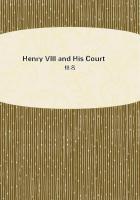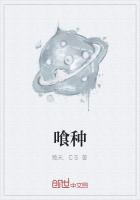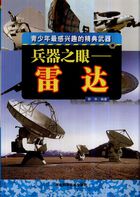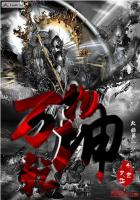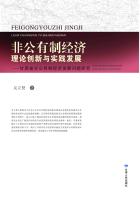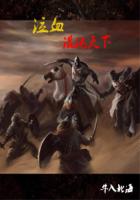The member of a republic, and the subject of a monarchy, must differ, because they have different parts assigned to them by the forms of their country.. the one destined to live with his equals, or, by his personal talents and character, to contend for pre-eminence; the other, born to a determinate station, where any pretence to equality creates a confusion, and where nought but precedence is studied. Each, when the institutions of his country are mature, may find in the laws a protection to his personal rights; but those rights themselves are differently understood, and with a different set of opinions, give rise to a different temper of mind. The republican must act in the state, to sustain his pretensions; he must join a party, in order to be safe; he must form one, in order to be great. The subject of monarchy refers to his birth for the honour he claims; he waits on a court, to shew his importance; and holds out the ensigns of dependence and favour, to gain him esteem with the public.
If national institutions, calculated for the preservation of liberty, instead of calling upon the citizen to act for himself, and to maintain his rights, should give a security, requiring, on his part, no personal attention or effort; this seeming perfection of government might weaken the bands of society, and, upon maxims of independence, separate and estrange the different ranks it was meant to reconcile. Neither the parties formed in republics, nor the courtly assemblies which meet in monarchical governments, could take place, where the sense of a mutual dependence should cease to summon their members together. The resorts for commerce might be frequented, and mere amusement might be pursued in the croud, while the private dwelling became a retreat for reserve, averse to the trouble arising from regards and attentions, which it might be part of the political creed to believe of no consequence, and a point of honour to hold in contempt.
This humour is not likely to grow either in republics or monarchies: it belongs more properly to a mixture of both; where the administration of justice may be better secured; where the subject is tempted to look for equality, but where he finds only independence in its place; and where he learns, from a spirit of equality, to hate the very distinctions to which, on account of their real importance, he pays a remarkable deference.
In either of the separate forms of republic or monarchy, or in acting on the principles of either, men are obliged to court their fellow-citizens, and to employ parts and address to improve their fortunes, or even to be safe. They find in both a school for discernment and penetration; but in the one, are taught to overlook the merits of a private character, for the sake of abilities that have weight with the public; and in the other, to overlook great and respectable talents, for the sake of qualities engaging or pleasant in the scene of entertainment, and private society, They are obliged, in both, to adapt themselves with care to the fashion and manners of their country. They find no place for caprice or singular humours. The republican must be popular, and the courtier polite. The first must think himself well placed in every company; the other must chuse his resorts, and desire to be distinguished only where the society itself is esteemed. With his inferiors, he takes an air of protection; and suffers, in his turn, the same air to be taken with himself. It did not, perhaps, require in a Spartan, who feared nothing but a failure in his duty, who loved nothing but his friend and the state, so constant a guard on himself to support his character, as it frequently does in the subject of a monarchy, to adjust his expence and his fortune to the desires of his vanity, and to appear in a rank as high as his birth, or ambition, can possibly reach.
There is no particular, in the mean time, in which we are more frequently unjust, than in applying to the individual the supposed character of his country; or more frequently misled, than in taking our notion of a people from the example of one, or a few of their members. It belonged to the constitution of Athens, to have produced a Cleon, and a Pericles; but all the Athenians were not, therefore, like Cleon, or Pericles.
Themistocles and Aristides lived in the same age; the one advised what was profitable; the other told his country what was just.
Section IV.
The Same subject continued The law of Nature, with respect to nations, is the same that it is with respect to individuals. it gives to the collective body a right to preserve themselves; to employ, undisturbed, the means of life; to retain the fruits of labour; to demand the observance of stipulations and contracts. In the case of violence, it condemns the aggressor, and establishes, on the part of the injured, the right of defence, and a claim to retribution.
Its applications, however, admit of disputes, and give rise to variety in the apprehension, as well as the practice of mankind.
Nations have agreed universally, in distinguishing right from wrong; in exacting the reparation of injuries by consent or by force. They have always reposed, in a certain degree, on the faith of treaties; but have acted as if force were the ultimate arbiter in all their disputes, and the power to defend themselves, the surest pledge of their safety. Guided by these common apprehensions, they have differed from one another, not merely in points of form, but in points of the greatest importance, respecting the usage of war, the effects of captivity, and the rights of conquest and victory.
When a number of independent communities have been frequently involved in wars, and have had their stated alliances and oppositions, they adopt customs which they make the foundation of rules, or of laws, to be observed, or alledged, in all their mutual transactions. Even in war itself, they would follow a system, and plead for the observance of forms in their very operations for mutual destruction.

